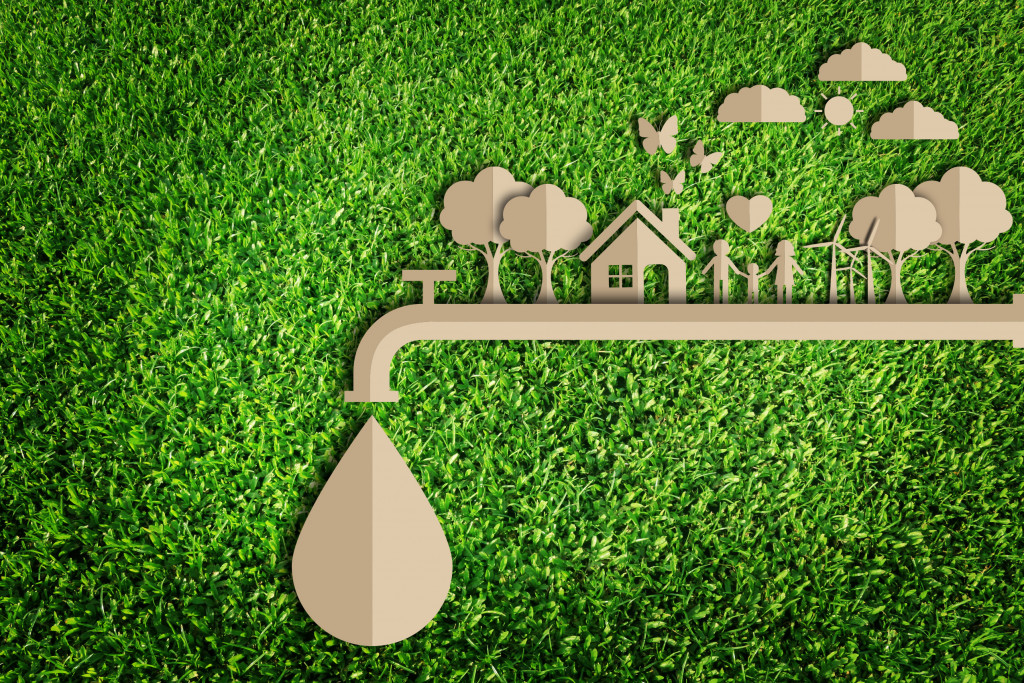You don’t have to be an environmentalist to know that your actions impact your surroundings. Everything you do can contribute to the global carbon footprint, which is slowly killing the planet. But it’s not just you; it’s everyone in the world that’s responsible for what’s happening to earth right now.
That is unless you can put a stop to it. Here’s how you can begin to make changes inside your home:
Water-efficient Plumbing Fixtures
You might not be aware of this yet. Still, typical households use up to 300 gallons (1.14 cubic meters) of water every day for their various activities, including showering, doing laundry, using the faucet, or washing the dishes. This is too much water consumed every day worldwide, especially considering that most of it is wasted because of outdated fixtures.
If your house is old or hasn’t been renovated in that last decade, you’re probably still using old faucets, showerheads, and toilets. While these aren’t wrong per se, they consume far too much water than what is needed to accomplish the tasks. That’s why you should consider switching to water-efficient plumbing fixtures.
For this, you can hire plumbing professionals to replace your existing fixtures with low-flow showerheads, dual-flush toilets, and water-saving faucets. This way, your household will only be consuming what you need, which can help conserve clean water.
Solar Energy Panels
It will be impossible to live without technology in today’s world, especially considering that almost everything people do is online — work, school, day-to-day communication, entertainment, and even information dissemination. Without electricity, it will be difficult to do all of these things easily.
However, electricity production is the second-biggest contributor to the overall carbon footprint because it burns fossil fuels next to transportation. This means that every household running on electricity contributes to the total carbon emissions produced. But that can be changed if you were to look into renewable energy sources.
A good example of this is if you were to have solar panels installed for your home. This will allow you to harness the sun’s energy and use that to power your home without having to rely on electrical systems. Not only will this help you reduce your energy consumption, but it can also decrease your overall carbon footprint.
Inverter Appliances

If you have yet to buy household appliances for your home, or if you’re in dire need of an upgrade, you should consider getting appliances that use inverter technology. You may have already heard about this before, but it’s worth mentioning again because appliances that use inverter technology are much safer for the environment and cheaper in the pockets.
The reason for this is that inverters are devices that can better control the electrical currents and frequencies, which means they can consume less electricity in the process. Unlike conventional or non-inverter appliances, the appliances with inverters tend to only consume the energy they need to run.
Common household appliances that use inverters include refrigerators, air conditioners, and washing machines. These appliances may be more costly upfront, but they can save you more money in the long run since they are more efficient and have a longer lifespan than conventional appliances.
Smart Technology
There are two kinds of people when it comes to smart home technology — those who can’t live without it and those who can’t be caught dead with it. Although these might exaggerate up to a certain level, it’s also very possible, considering that smart technology can be divisive depending on its users.
Some people don’t consider ever using smart technology because they’re worried about their safety and security if they were to use it. They’re afraid of getting hacked and having their information stolen to be sold online. But while that’s a real possibility, it’s also likely not going to happen unless they have substantial wealth on their digital footprints.
But if you consider using smart technology at home, you’ll realize that it can help you conserve more energy because you can program the devices to turn off when they’re not in use. You can also keep them working on a schedule, so you won’t have to remember, and eventually forget, to turn the appliances on or off.
You don’t have to have a fully automated house to enjoy the benefits of smart home technology. But if you can handpick the ones that can make a difference in how you manage and use your house, it would be worthwhile investments that can also be advantageous for the environment.
It’s never too late to do your part for the environment, especially if it means you’ll be exerting effort towards something bigger than yourself. Of course, your actions might not seem very big on the large scale of things, but doing something is always better than doing nothing, and you can start inside your home.

